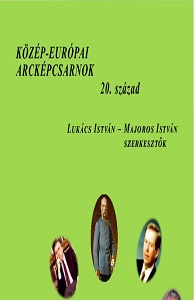Milan Hodža
Milan Hodža
A Slovak Agrarian Politician and Central European Thinker
Author(s): Iván Halász
Subject(s): Cultural history, Diplomatic history, Ethnohistory, History of ideas, Pre-WW I & WW I (1900 -1919), Interwar Period (1920 - 1939), WW II and following years (1940 - 1949)
Published by: Eötvös Loránd Tudományegyetem, Új-és Jelenkori Egyetemes Történeti Tanszék
Keywords: agrarian movement; Central Europe; fedaration; parliament; prime minister;
Summary/Abstract: Dr. Milan Hodža (1878–1944) was the first prime minister of Czechoslovakia with Slovak origin (1935–1938), but he was active in the public life from the end of 19th century. Before the first world war he was the member of Hungarian parliament and the unofficial advisor of the Franz Ferdinand (Belveder Circle). Hodža this time established the Slovak agrarian democratic political movement and after 1919 he was the deputy president of the Czechoslovak Agrarian Party, which was the most important civic party in the interwar period. Hodža always supported the idea of the cooperation of the Central European countries. Especially important was this idea for him during his emigration under second world war. Hodža did not agree with the pro-Soviet orientation of emigrant president Edvard Beneš and they had many conflicts. Beneš was the winner of this struggle and Hodža emigrated to USA. There he wrote the main publication of his life – the concept of the fedaration in the Central Europe.
Book: Közép-európai arcképcsarnok. 20. század
- Page Range: 127-144
- Page Count: 18
- Publication Year: 2018
- Language: Hungarian
- Content File-PDF

